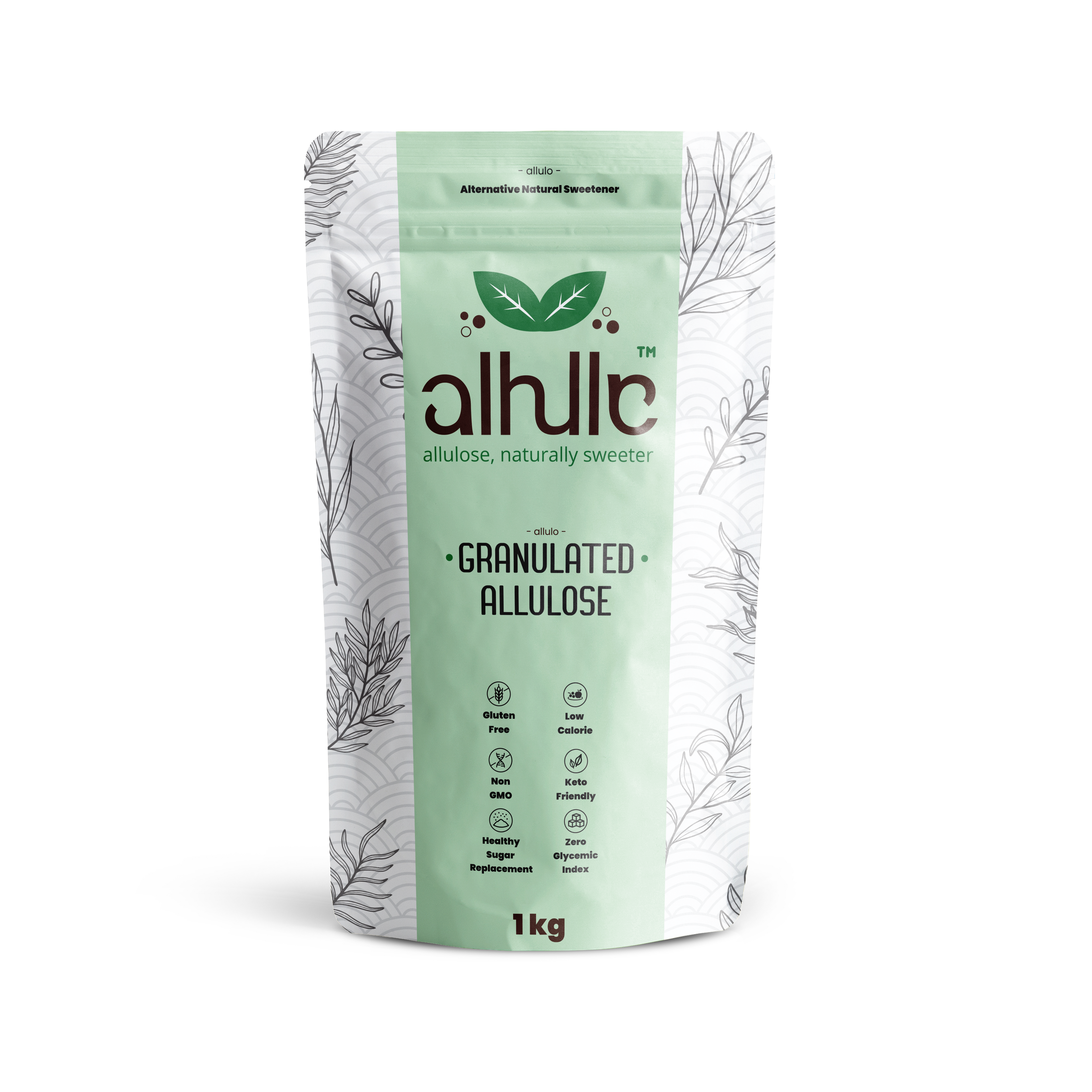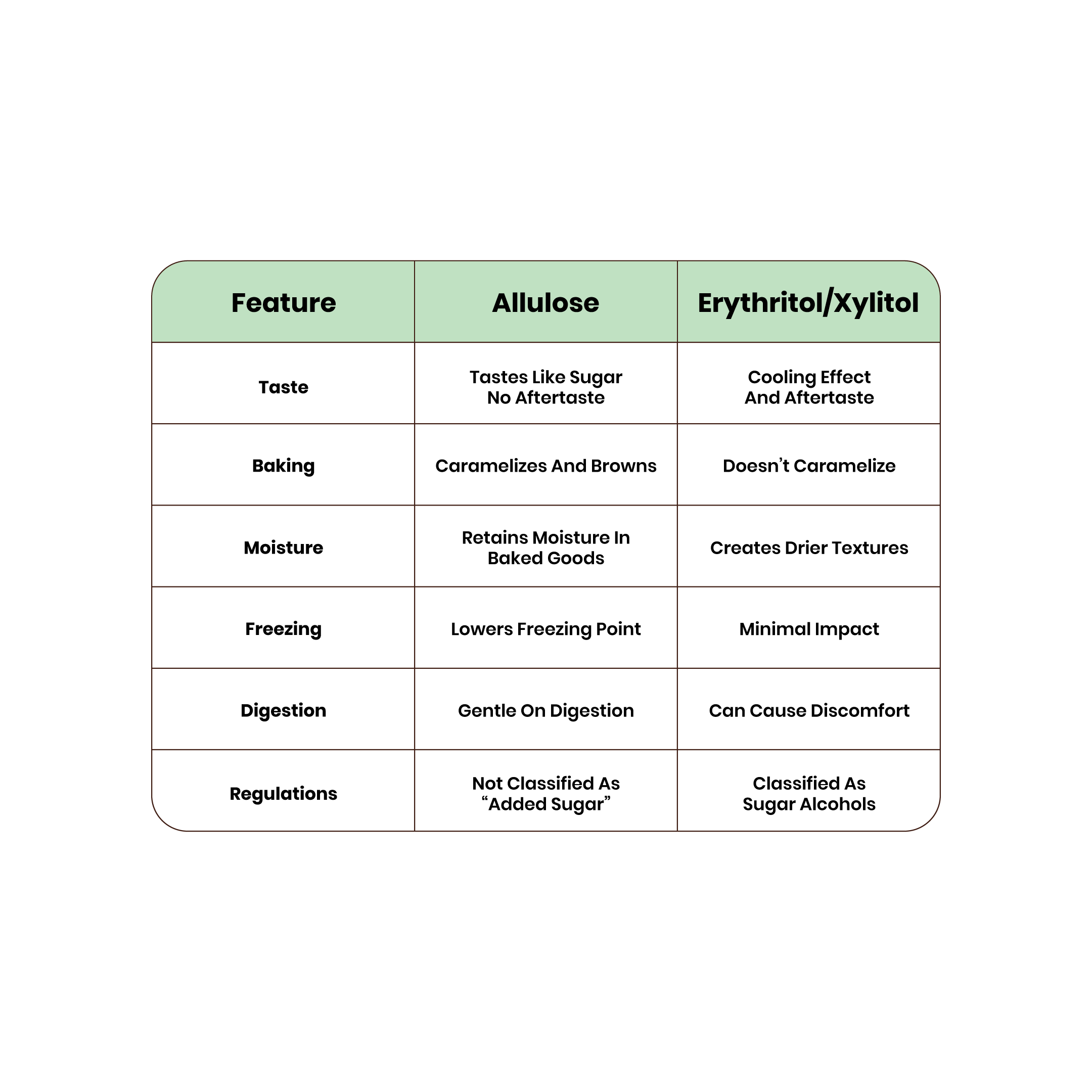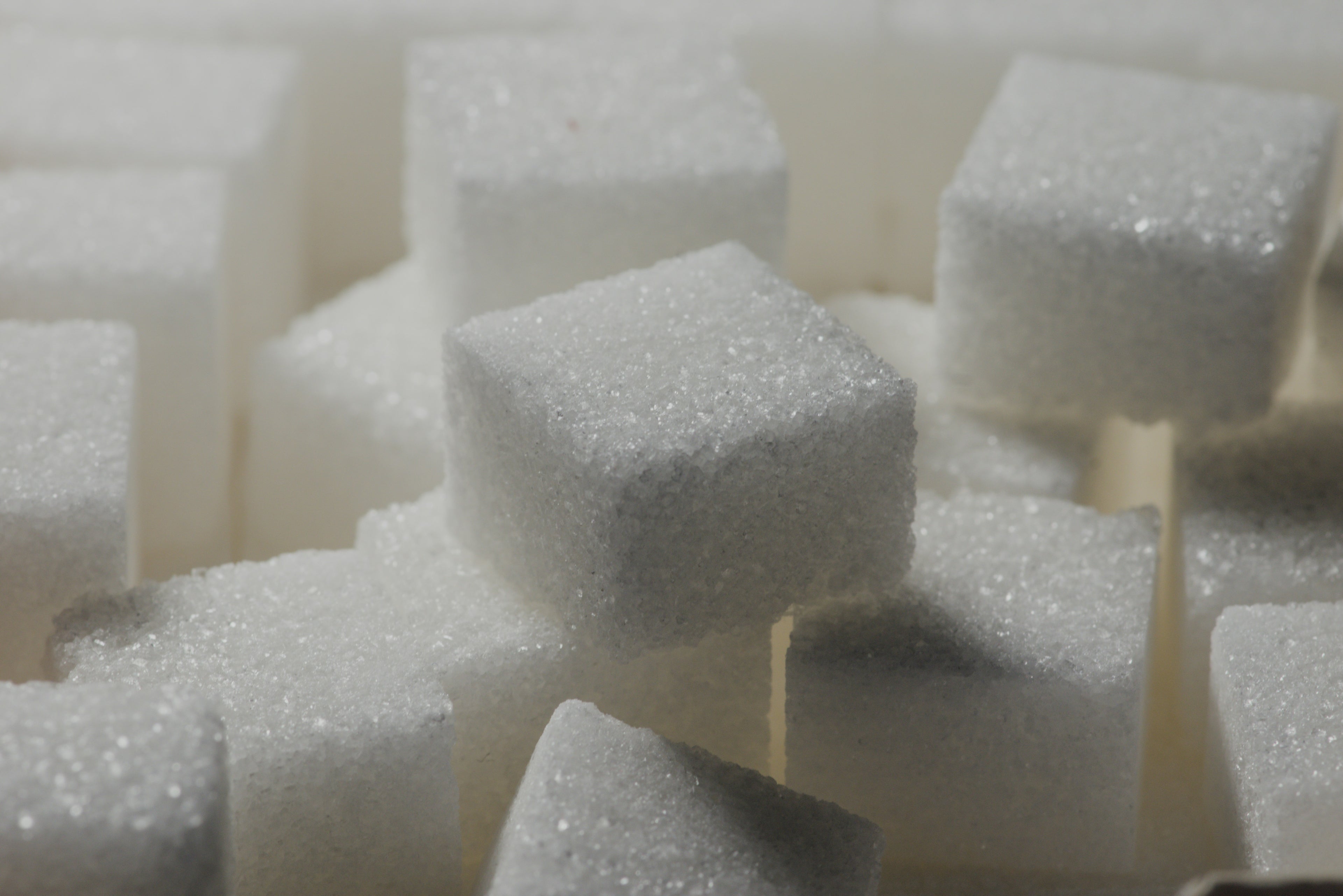
Allulose
Allulose is a rare sugar naturally found in fruits like figs and raisins. It’s about 70% as sweet as sugar but has 90% fewer calories, making it virtually calorie-free. Unlike regular sugar(sucrose), allulose is a monosaccharide, meaning it contains a single sugar molecule. Allulose acts like sugar and can be caramelised and used as a direct sugar replacement or alternative. It also has no aftertaste (e.g. stevia and monk fruit),and does not negatively impact the gut in the way sugar alcohols do (e.g. xylitol, maltitol, and erythritol).



Allulose Market Overview: Global and South Africa Prospects
Global Allulose Market Prospects
The allulose market demonstrates robust growth potential globally. Current projections estimate the market size to
expand from approximately USD 54.52 million in 2022 to between USD 256.25 million in 2024 and USD 598.61 million by 2034, translating to a significant compound annual growth rate (CAGR) of around 8.9% over this period. Different reports indicate varying growth rates, with some projecting a CAGR as high as 19.2% from 2024 to 2030, indicating a highly dynamic industry changing in response to rising health consciousness and the demand for low-calorie sweeteners
Factors driving this growth include increasing obesity and diabetes rates, leading to heightened consumer demand for healthier food alternatives. The market is bolstered further by regional initiatives promoting low-calorie and sugar-free products, especially in response to the global public health trend favouring preventative healthcare and wellness.
Future Potential Markets
The future landscape for allulose is notably favourable, with culinary and pharmaceutical applications expanding. Its popularity is anticipated to rise in the food and beverage sectors, including baked goods, dietary supplements, and ready-to-eat meals. This trend is facilitated by innovations in product formulations that incorporate allulose as a sugar replacement, catering to health-conscious consumers
South Africa Market Insights
In the South African context, the Allulose market is beginning to gain traction, fuelled by demographic shifts towards healthier eating habits and rising awareness of the nutritional benefits of alternative sweeteners. However, there is a significant disparity in affordability in the greater (Low LSM) South African market vs global markets. As manufacturing methods improve, and EOS increases, this will make Allulose a more competitive alternative to current established alternative sweeteners. Initiatives like the Healthy Living Alliance (HEALA) Home - Heala - have been pivotal in promoting healthy lifestyle choices that align with the consumption of products like allulose
As industries adapt to local health trends and regulations evolve in favour of low-calorie sweeteners, the demand for allulose is expected to grow. The growth trajectory in South Africa may reflect broader global trends, with a potential CAGR mirroring the global estimates, marking it as a burgeoning market for allulose in the upcoming years.

Overall, the allulose market showcases a promising trajectory both globally and specifically in South Africa. With health trends steering consumer choices and market dynamics indicating a shift towards low-calorie alternatives, stakeholders can anticipate significant opportunities in this evolving landscape.
https://www.futuremarketinsights.com/reports/allulose-market
https://www.transparencymarketresearch.com/allulose-market.html
https://www.precisionbusinessinsights.com/market-reports/allulose-market
https://www.knowledge-sourcing.com/report/global-allulose-market
https://www.maximizemarketresearch.com/market-report/global-allulose-market/98626/
https://www.futuremarketinsights.com/reports/allulose-market
Manufacturing
Very recent scientific advancements have made Allulose a commercially viable alternative natural sweetener: Comprehensive Analysis of Allulose Production: A Review and Update. What follows is the production flow we use in the manufacture of our Allulose. Allulo makes use of Non-GMO fructose stock and are certified Organic (USDA/EU), Kosher, Halal and Non-GMO.
1. Biotransformation Techniques
Enzymatic approaches for producing allulose began to gain traction, overcoming the limitations of traditional chemical synthesis methods which often produced harmful by-products and were not environmentally friendly. The primary method involves converting d-fructose into d-allulose using ketose 3-epimerase enzymes. This process is more straightforward and allows for higher yields compared to previous methods. Enzymatic processes are characterized by their simplicity, lower costs, and eco-friendliness, making them attractive for industrial applications.
2. Enzyme Engineering and Optimization
The mid-2010s saw significant advancements in molecular biology, which led to better enzyme selection and the engineering of more heat-stable ketose 3-epimerases. Techniques such as directed evolution and gene mining were utilized to enhance enzyme stability and productivity. For instance, researchers developed methods to screen for more robust enzymes capable of
withstanding higher temperatures, thus improving the overall conversion efficiency from d-fructose to d-allulose.
3. Separation and Purification Technologies
Alongside advancements in enzymatic production, techniques for efficiently separating and purifying d-allulose from the reaction mixture, such as simulated moving bed chromatography, were also developed. These technologies enhance the overall yield and reduce processing time, making the commercial production of allulose more feasible.
4. Regulatory Approval and Market Demand
The recognition of allulose's health benefits, such as low caloric content and minimal impact on blood glucose levels, has led to increased consumer demand for low-calorie sweeteners. Following its approval by regulatory bodies, including the FDA, allulose began to find its way into various food products, reinforcing its market viability.


